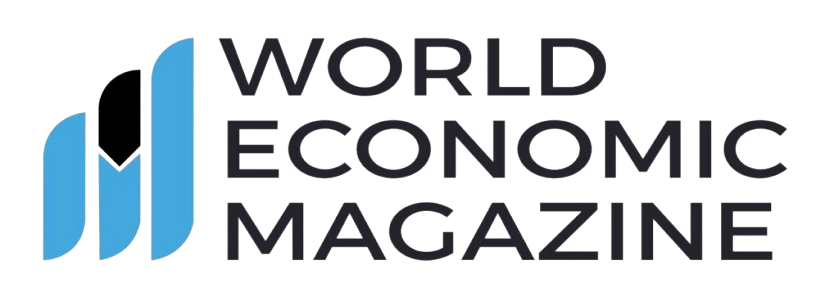

Healthtech in Venture Capital: Trends, Challenges, and Emerging Opportunities
Healthtech has steadily evolved into one of the most dynamic segments of the venture capital (VC) landscape. Its momentum accelerated during the COVID-19 pandemic, when demand for remote care, digital health solutions, and medical innovation surged globally. At its peak in 2020, healthcare accounted for 18.4% of global VC deal flow, driven largely by unprecedented funding in biopharma.
Although enthusiasm has cooled alongside broader market contractions, healthtech continues to present investors with rich opportunities. From artificial intelligence–powered drug discovery to next-generation weight loss drugs, the sector is once again shaping the future of healthcare delivery.
Defining healthtech
In its broadest sense, healthtech refers to any application of technology across healthcare products and services. It spans nearly every vertical of the industry, including:
- Healthcare IT: Enterprise platforms for providers, insurers, and patients.
- Digital health: Telemedicine, digital therapeutics, and chronic disease management.
- Medtech: Devices, diagnostics, and medical imaging software.
- Biopharma: Drug development and therapeutics.
- Pharmatech: Technologies supporting research, trials, and commercialization.
Together, these categories make healthtech the fastest-growing subset of healthcare.
The pandemic boom and bust
Between 2020 and 2021, healthtech startups proliferated, and unicorn valuations soared. Rebecca Springer, PitchBook’s lead healthcare analyst, notes that “the ecosystem basically doubled overnight.” But as markets normalized, many firms found themselves constrained by inflated valuations. Some faced down rounds; others struggled to raise capital at all.
“The healthcare ecosystem really felt this boom-bust cycle, probably more than other industries,” Springer explains. “Still, innovation hasn’t disappeared. The opportunities are very real.”
Where VC is flowing today
Despite a tougher fundraising climate, certain areas within healthtech continue to attract significant venture interest. Two categories stand out:
AI in healthcare
Artificial intelligence is streamlining inefficiencies across drug development, care delivery, and diagnostics.
- Drug discovery: AI platforms rapidly sift through millions of compounds to identify promising drug candidates. While no AI-created drug has yet reached the market, the promise of reducing costs and timelines is spurring investor activity. Companies like Unnatural Products, with $38.4 million raised, are engineering synthetic macrocycles with AI.
- Clinical documentation: Natural language processing tools are transforming patient-doctor interactions into structured clinical notes. This not only saves physicians time but also enhances accuracy in records. While early in adoption, Springer views it as the first step toward broader AI integration in care delivery.
Weight loss drugs
Few innovations have reshaped healthtech as dramatically as GLP-1 weight loss drugs. Initially used to treat diabetes, these drugs are now proven to lower cardiovascular risks and may aid in chronic kidney disease management. Their widespread efficacy makes them one of the most significant addressable markets in healthcare today.
Leading global healthtech companies
PitchBook tracks more than 21,000 healthtech players worldwide. Among the most well-capitalized are:
- Devoted Health – Raised $2.2B; provides personalized Medicare Advantage plans.
- Tempus – Raised $1.4B; leverages AI and genomic sequencing for precision medicine.
- Freenome – Raised $1.4B; pioneers early cancer detection through routine blood draws.
- CMR Surgical – Raised $1.2B; develops robotic systems for minimally invasive surgeries.
- Ro – Raised $1B; offers direct-to-consumer telehealth solutions, from diagnosis to medication delivery.
These firms exemplify the diversity and innovation potential in healthtech.
Emerging frontiers
Beyond AI and weight loss therapeutics, new healthtech frontiers are attracting investment. Areas like CRISPR diagnostics, fertility tech, nanomedicine, neurotechnology, and VR health are gaining momentum. Notable players include InSilico Medicine in anti-aging research, Kindbody in fertility care, and Precision Neuroscience in brain-computer interfaces.
The outlook for 2024 and beyond
Near-term, Springer warns that raising capital will remain challenging. “Healthcare as a proportion of global venture activity will likely decline in 2024 relative to 2023. It’s still a hard market for startups and investors.”
Yet she remains bullish on the long-term trajectory: “The demand to solve systemic problems, improve patient outcomes, and enhance provider satisfaction is undeniable. Healthtech is poised for sustained growth.”
As innovation cycles continue and capital finds its way to transformative solutions, Healthtech remains one of the most critical—and resilient—arenas in global venture capital.




